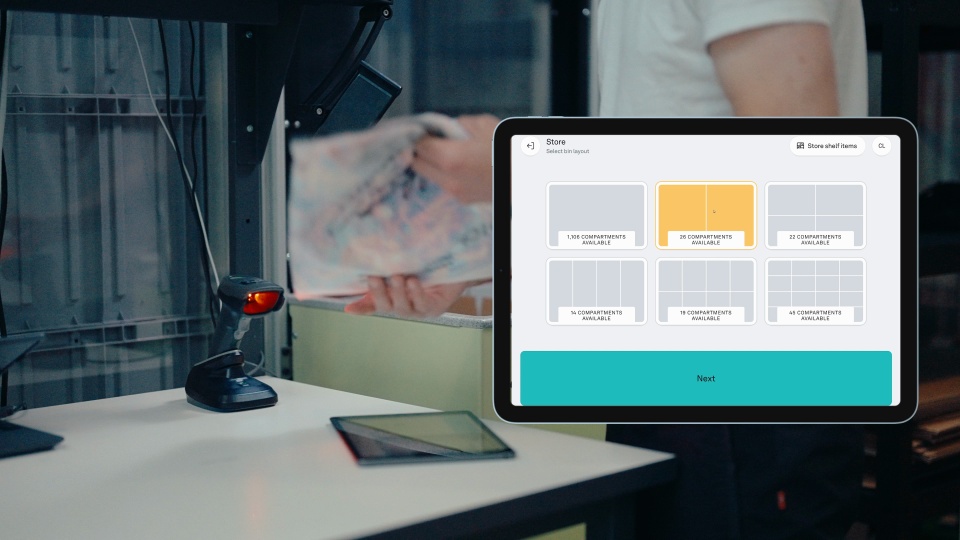With customer demands for efficiency set to heighten further, it’s looking more and more likely that implementing automation might be the only way to maintain your competitive edge. From freeing up space and resources to improving the accuracy of your operations, automating processes can open up a whole new world of innovation and opportunity.
Especially for businesses dealing with order picking and fulfillment, automation offers both immediate and long-term benefits. From streamlining customer relationships to enhancing rapport with strategic partners, automation is about more than just cutting costs and improving efficiency.
While investment in new warehouse systems can feel like a big undertaking at the start, gaining a deeper understanding of how automation works (and finding the right solution for you!) can help eliminate these concerns. Once implemented, automation will bring both instantaneous and long-term benefits for your businesses — making it a logical investment for businesses of all sizes.
But what exactly do you need to know in order to select the right warehouse automation solution? We’re here with all the insights you need.
What automation options are currently available?
Similar to how other technologies are typically adopted, some businesses choose to introduce robots and automation gradually, while others immediately embrace every opportunity to reduce the need for manual input.
As a result, warehouse automation is generally broken down into four levels. These levels are:
- Basic automation
- System automation
- Mechanized automation
- Advanced automation
In a warehouse using basic automation, a worker is still likely to move between warehouse stations and carry out tasks by hand. However, they may also utilize equipment such as basic conveyor belts or scanning devices. While many warehouses at this level are likely to increase their use of automated technology over time due to customer demands and pressure from competition, there will still be businesses that choose to keep automation to a minimum. Reasons for this can range from a distrust of certain technology to a reluctance to take on additional financial risk.
Warehouses that utilize system automation generally apply a strategic use of software to streamline processes and reduce human errors. From the use of Warehouse Management Systems (WMS) to implementing automated security protocols, system automation provides a data-driven approach to improving the performance of your warehouse.
With mechanized automation, robotics are introduced in order to reduce the need for manual input and expedite tasks such as order picking and item transport. For example, a mechanized warehouse might be one that uses technology such as Automated Storage and Retrieval Systems (AS/RS) to speed up order processing and optimize space. Because many mechanized systems also use software to enhance their performance, you can completely transform your operations with one comprehensive system.
For those using advanced automation, technology often has more complete control over supply chain and inventory management. With little need for manual input, fully automated warehouses tend to focus the skills of their workforce on improving the customer experience and enhancing other business functions. Advanced automation tends to rely heavily on the integration of mechanized systems and software to achieve optimal performance. This is why advanced automation is usually best suited to warehouses that need their entire operations to work in unison at any cost.
Which businesses can benefit from warehouse automation?
The use of robots and automation is becoming increasingly relevant to almost all businesses using warehouses, depots or general storage facilities. Up and down the supply chain, warehouse automation is improving performance across nearly every business sector you could think of.
Just some examples of the sectors already experiencing the benefits of warehouse automation:
- Online stores and retailers
- Manufacturers and wholesale distributors
- Logistics companies
- Food and beverage suppliers
- Pharmaceutical and healthcare companies
What level of warehouse automation is right for my business?
The level of automation your warehouse requires will largely depend on your business strategy and structure. However, with consumer demands for faster and more accurate service, the benefits of automated warehouses are more necessary than ever.
Whether you choose basic automation, system automation, mechanized automation, or advanced automation — finding systems that match your business needs is essential.
With the right solution, you can immediately reduce logistical headaches and focus your attention on other aspects of your business. This is why when researching automated systems, it's essential to focus on the benefits that align with your business goals and choose the right technology for you.
Examples of benefits your warehouse can leverage with the right system:
- Better management of inventory
- Reduced levels of human error
- Improved workforce efficiency/productivity
- Reliable supply chain insights
- Reduced operational costs
- Faster processing times
- Optimization of warehouse space
Are all warehouse automation solutions equal?
As much as we’d love to tell you that choosing the right technology for your warehouse will be easy, the wrong solution implemented at the wrong time can prove detrimental to your business. This is why making an informed decision from the start is essential.
Even though any kind of transformation for your business can mean big changes and a potential need for investment, don’t let this put you off. New technology is meant to make life easier, not harder — and once you have the right structure and strategy, the payoff can be nearly instantaneous!
If you’re unsure about what makes a good automation solution, some signs to look out for include:
- Testimonials from other clients
- The ability to customize the system to suit your current or future warehouse
- An installation team that will work with you to design a solution that matches your business model
- The ability to connect existing software to the system
- The availability of training and detailed documentation to ensure your teams are brought up to speed
- The ability to provide statistics on efficiency improvements and performance
Tip: Choosing a supplier with a proven track record for great customer service is essential. With the right team offering support (especially for customizable systems) your business can immediately reap the rewards of automated processes.
What is Pio and is it right for my business?
As well as all the benefits mentioned throughout this blog, Pio is a warehouse automation solution that’s already several steps ahead of the rest. Pio was designed from the ground up to be the best solution for small and medium size e-commerce businesses to jump into automation.
Utilizing AutoStore's pioneering cube storage technology in a brand new way, you can pick and pack up to 130 order lines per hour with 99.9% accuracy. With an easy-to-use interface and scalability in mind, you can place your entire warehouse into the safe hands of a system that’s been designed to match your business needs.
Some quick facts about Pio:
- Store up to 10x more items in the same space with the best storage utilization available
- Developed with energy efficiency in mind, Pio uses only 100W for every hour of operation
- Pio’s software can be designed to work with your existing systems
- Pio can scale with your business — we’ll expand your grid and add more robots as you need them!
- Pio is 2-5x faster than manual picking operations
- One-click Shopify integration and an Open API for all other e-commerce platforms
Pio also includes training, documentation, and ongoing support for your new system. So what’s stopping you? Free your business from logistical headaches and streamline your operations with a system that caters to your exact business needs
Hoping to find out more? You can book a free consultation with our team to discuss your warehouse automation options.


.jpg?width=1920&name=pio_foto%20(33%20of%2082).jpg)


